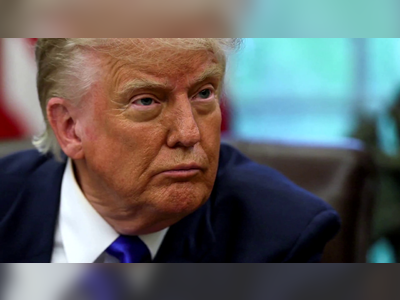
János Kornai obituary
Hungarian-born Harvard professor who pinpointed the flaws of communist bloc command economies in the 70s and 80s
The Hungarian economist János Kornai, who has died aged 93, did much to explain the structural failure of the planned economies of the communist bloc countries of eastern Europe of the 1970s and 80s. When the governments administering them eventually collapsed, he argued for a gradual transition to a market economy.
His book Economics of Shortage (1980) provided a systematic analysis of how the command economy worked in practice. Kornai identified chronic shortages as its main characteristic, arguing that this was not a result of planners’ errors or lazy and obstructive workers, but rather of systemic flaws. Shortages arose from the fact that loss-making state-owned enterprises would never be closed down. They had easy access to government subsidies and survived in spite of persistent losses.
Kornai’s key idea was the “soft budget constraint”. In western market economies most companies have to balance revenues and outlays – a hard budget constraint. But in planned economies the soft constraint ensured that companies hoarded material and financial resources to make sure that they could fulfil planned production targets, knowing that they would be bailed out anyway in case of deficits. The overall situation resulted in chronic shortages, wasted resources and general inefficiency.
Later economists applied the idea of the soft budget constraint beyond command economies, notably whenever an economic unit is deemed too big to fail. This creates expectations of bailout and accordingly influences management behaviour, as with big banks and professional football clubs.
In 1986, Kornai left Hungary for a professorship at Harvard University. That enabled him to write more openly, and his criticism of communism as a political and economic system was sharpened in publications such as The Socialist System: The Political Economy of Communism (1992).
When the communist regimes of eastern Europe collapsed in 1989, he wrote a short book, The Road to a Free Economy (1990), outlining a clear programme for a shift to a market economy. He maintained that this should be done gradually, and not through the shock therapy of mass privatisation. Much hardship could have been avoided if the post-socialist reformers had paid more attention to his advice.
Born in Budapest, János came from a well-to-do Hungarian-Jewish family, the son of Aranka (nee Schanz) and Pal Kornhauser, an attorney who advised German companies in Hungary. He lost his father and a brother in the Holocaust and barely survived the German occupation of Budapest himself. In 1945 he changed his surname to Kornai.
After the war he studied philosophy for two years at Pázmány Péter University in Budapest. He became an enthusiastic supporter of communism and for several years worked for a communist newspaper until he became disillusioned with the system and entered academia. Kornai gained his knowledge of economics through self-study and went on to gain a candidate degree in the field – CSc, equivalent to a PhD elsewhere – from the Hungarian Academy of Sciences. His dissertation, Overcentralization in Economic Administration, which was full of facts about the flaws of the centrally planned economy, received much attention when – following Hungarian practice – he gave a public defence of it in front of an audience during the short-lived uprising against the Stalinist system in 1956. The thesis was published as a book the following year, and in English by OUP in 1959.
As an eloquent and visible supporter of the Hungarian revolution, Kornai suffered from the subsequent repression; he was imprisoned, expelled from academia, denied a passport and had to take up obscure jobs in industry ministries for the next decade. When the repression eased from the end of the 1960s, he was able to write and publish. During the last two decades of the communist regime he articulated a highly critical understanding of the planning system under the suspicious eye of the Communist party. Through clever self-censorship he was able to keep the secret police at arm’s length without compromising his main ideas, and he even influenced attempts to reform the economic system.
A kind, humble and courageous man and a mentor to many, Kornai was not awarded the Nobel prize for economics, but certainly deserved it. This may be due in part to his criticism of general equilibrium theory, the crown jewel of mainstream economic theory, in his book Anti-Equilibrium (1971).
Unlike most of the profession, his approach to understanding economics was inductive, building theories from observations of real economic problems, rather than deductive, through applying the general assumptions of mainstream economics, which he did not consider appropriate in a socialist context. Kornai introduced a new way of understanding to this reality based on practical economic problems such as information asymmetry – one side in an agreement knowing more than the other – bargaining and the conventions and routines to be found in a socialist command economy.
In 2002, he left Harvard University and returned to Hungary, becoming emeritus professor of both Harvard and Corvinus University of Budapest. He was one of Hungary’s earliest and most vociferous critics of the regime of Victor Orbán, and continued writing influential papers about transition and reform in his 90s.
He had advised the Chinese government in its early stages of economic reform in the 1980s, but became a strong critic of the autocratic regime of Xi Jinping. He regretted his role which he saw as contributing to the creation of a Frankenstein’s monster. Influenced by firsthand experience of nazism and communism, his views were fundamentally shaped by his belief in the primacy of freedom, human rights and democracy above economic growth and material welfare.
His marriage in 1952 to Teréz Laky ended in divorce. In 1971 he married Zsuzsa Dániel. She predeceased him, and he is survived by their daughter, Judit, sons, Gábor and András, and seven grandchildren.
His book Economics of Shortage (1980) provided a systematic analysis of how the command economy worked in practice. Kornai identified chronic shortages as its main characteristic, arguing that this was not a result of planners’ errors or lazy and obstructive workers, but rather of systemic flaws. Shortages arose from the fact that loss-making state-owned enterprises would never be closed down. They had easy access to government subsidies and survived in spite of persistent losses.
Kornai’s key idea was the “soft budget constraint”. In western market economies most companies have to balance revenues and outlays – a hard budget constraint. But in planned economies the soft constraint ensured that companies hoarded material and financial resources to make sure that they could fulfil planned production targets, knowing that they would be bailed out anyway in case of deficits. The overall situation resulted in chronic shortages, wasted resources and general inefficiency.
Later economists applied the idea of the soft budget constraint beyond command economies, notably whenever an economic unit is deemed too big to fail. This creates expectations of bailout and accordingly influences management behaviour, as with big banks and professional football clubs.
In 1986, Kornai left Hungary for a professorship at Harvard University. That enabled him to write more openly, and his criticism of communism as a political and economic system was sharpened in publications such as The Socialist System: The Political Economy of Communism (1992).
When the communist regimes of eastern Europe collapsed in 1989, he wrote a short book, The Road to a Free Economy (1990), outlining a clear programme for a shift to a market economy. He maintained that this should be done gradually, and not through the shock therapy of mass privatisation. Much hardship could have been avoided if the post-socialist reformers had paid more attention to his advice.
Born in Budapest, János came from a well-to-do Hungarian-Jewish family, the son of Aranka (nee Schanz) and Pal Kornhauser, an attorney who advised German companies in Hungary. He lost his father and a brother in the Holocaust and barely survived the German occupation of Budapest himself. In 1945 he changed his surname to Kornai.
After the war he studied philosophy for two years at Pázmány Péter University in Budapest. He became an enthusiastic supporter of communism and for several years worked for a communist newspaper until he became disillusioned with the system and entered academia. Kornai gained his knowledge of economics through self-study and went on to gain a candidate degree in the field – CSc, equivalent to a PhD elsewhere – from the Hungarian Academy of Sciences. His dissertation, Overcentralization in Economic Administration, which was full of facts about the flaws of the centrally planned economy, received much attention when – following Hungarian practice – he gave a public defence of it in front of an audience during the short-lived uprising against the Stalinist system in 1956. The thesis was published as a book the following year, and in English by OUP in 1959.
As an eloquent and visible supporter of the Hungarian revolution, Kornai suffered from the subsequent repression; he was imprisoned, expelled from academia, denied a passport and had to take up obscure jobs in industry ministries for the next decade. When the repression eased from the end of the 1960s, he was able to write and publish. During the last two decades of the communist regime he articulated a highly critical understanding of the planning system under the suspicious eye of the Communist party. Through clever self-censorship he was able to keep the secret police at arm’s length without compromising his main ideas, and he even influenced attempts to reform the economic system.
A kind, humble and courageous man and a mentor to many, Kornai was not awarded the Nobel prize for economics, but certainly deserved it. This may be due in part to his criticism of general equilibrium theory, the crown jewel of mainstream economic theory, in his book Anti-Equilibrium (1971).
Unlike most of the profession, his approach to understanding economics was inductive, building theories from observations of real economic problems, rather than deductive, through applying the general assumptions of mainstream economics, which he did not consider appropriate in a socialist context. Kornai introduced a new way of understanding to this reality based on practical economic problems such as information asymmetry – one side in an agreement knowing more than the other – bargaining and the conventions and routines to be found in a socialist command economy.
In 2002, he left Harvard University and returned to Hungary, becoming emeritus professor of both Harvard and Corvinus University of Budapest. He was one of Hungary’s earliest and most vociferous critics of the regime of Victor Orbán, and continued writing influential papers about transition and reform in his 90s.
He had advised the Chinese government in its early stages of economic reform in the 1980s, but became a strong critic of the autocratic regime of Xi Jinping. He regretted his role which he saw as contributing to the creation of a Frankenstein’s monster. Influenced by firsthand experience of nazism and communism, his views were fundamentally shaped by his belief in the primacy of freedom, human rights and democracy above economic growth and material welfare.
His marriage in 1952 to Teréz Laky ended in divorce. In 1971 he married Zsuzsa Dániel. She predeceased him, and he is survived by their daughter, Judit, sons, Gábor and András, and seven grandchildren.
AI Disclaimer: An advanced artificial intelligence (AI) system generated the content of this page on its own. This innovative technology conducts extensive research from a variety of reliable sources, performs rigorous fact-checking and verification, cleans up and balances biased or manipulated content, and presents a minimal factual summary that is just enough yet essential for you to function as an informed and educated citizen. Please keep in mind, however, that this system is an evolving technology, and as a result, the article may contain accidental inaccuracies or errors. We urge you to help us improve our site by reporting any inaccuracies you find using the "Contact Us" link at the bottom of this page. Your helpful feedback helps us improve our system and deliver more precise content. When you find an article of interest here, please look for the full and extensive coverage of this topic in traditional news sources, as they are written by professional journalists that we try to support, not replace. We appreciate your understanding and assistance.











